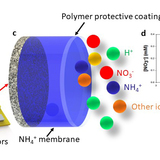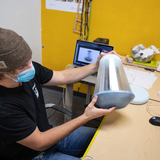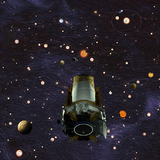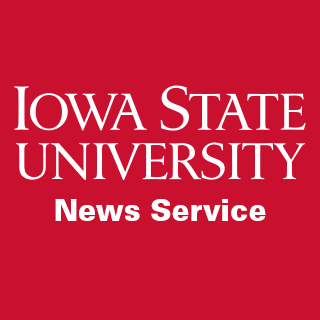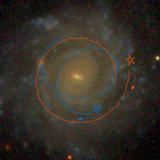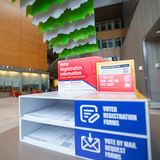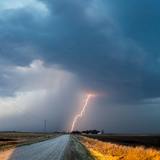News Archive
Thursday, October 15 2020
-
Personalized cancer outreach more effective, study finds
Iowa State's Ju-Yeon Lee helped develop a tool to personalize cancer outreach efforts and recommend the most suitable intervention for the patient. Lee's research shows a more personalized approach improves the completion rate of recommended screenings for patients at high risk for liver cancer.
-
Iowa State engineer aids $9 million project to manufacture biobased electronics
Iowa State's Jonathan Claussen will contribute his expertise in sensor technology to a $9 million project that's using plant-based inks to print low-cost, biodegradable and recyclable electronics. The National Science Foundation is supporting the project as part of an effort to advance U.S. biomanufacturing, cybermanufacturing and ecomanufacturing.
-
Looking back: Historian will discuss early epidemics at Iowa State
In light of the ongoing COVID-19 pandemic, an Ames native and Iowa State University alumnus is “coming home” to discuss epidemics at his alma mater more than a century ago.
-
Tackling real-world, real-time issues in the classroom
As Iowa State University’s fall courses adjusted due to the COVID-19 pandemic, faculty across campus found ways to bring real-time, real-world issues into the classroom, from face covering redesigns to Iowa State's "Cyclones Care" campaign to social justice issues in city planning.
-
Iowa State experts available to comment on 2020 election
With the November election just weeks away, Iowa State experts are available to discuss a variety of issues as well as the outlook in the race for president and congressional seats.
-
“The NASA Kepler Mission” book: Planet hunting, star studies and, “Are we alone?”
A new book chronicles the scientific discoveries of NASA's Kepler and K2 missions. It also asks some big questions: "Are we alone? What is our place in the Universe?" Iowa State's Steve Kawaler contributed to the book and is chair of the editorial advisory board for the partnership that published the book. -
Tropical Cyclone Studies at ISU
As Atlantic hurricanes and tropical storms continue to make landfall, Iowa State's Christina Patricola, who studies tropical cyclones, tells viewers how a new grant from the U.S. Department of Energy's Office of Science Early Career Research Program will help her study global storm numbers and regional storm intensity and rainfall.
-
Astronomers model, determine how disk galaxies evolve so smoothly
By developing better computer simulations, researchers have determined that the scattering of stars from their orbits by the gravity of massive clumps within galaxies leads to a common look in galaxy disks -- bright centers fading away to dark edges.
-
Iowa State names Dorhout as next vice president for research
Peter K. Dorhout has been named vice president for research at Iowa State University. Dorhout, a fellow of the American Association for the Advancement of Science and former president of the American Chemical Society, currently serves as VPR and professor of chemistry at Kansas State University. He will begin his tenure in Ames by Jan. 25, 2021.
-
Iowa State students, Catt Center leading efforts to urge voter registration, voting plan
Iowa State University students and campus leaders are doing everything possible to encourage students to register to vote and to make a voting plan for the November general election, including the creation of voter information stations across campus.
-
COVID-19 weekly snapshot
The following information is a supplement to the university's COVID-19 Public Health Data weekly updates. It is intended to provide a brief snapshot of the data and trends identified by Iowa State's public health team.
-
Heavy rainfall drives a third of nitrogen runoff, according to new study
Extreme rain events that occur on nine days a year drive around a third of all nitrogen yields on farmland in the Mississippi River basin, according to a new study. The research could inform how and when farmers apply nitrogen fertilizer to their fields and has environmental implications for the hypoxic zone in the Gulf of Mexico.
-
Researchers to study effects of landlord decisions during pandemic
A rapid response grant from the National Science Foundation will allow an Iowa State University research team to study how landlord decision-making has contributed to rental housing instability during the COVID-19 pandemic.

